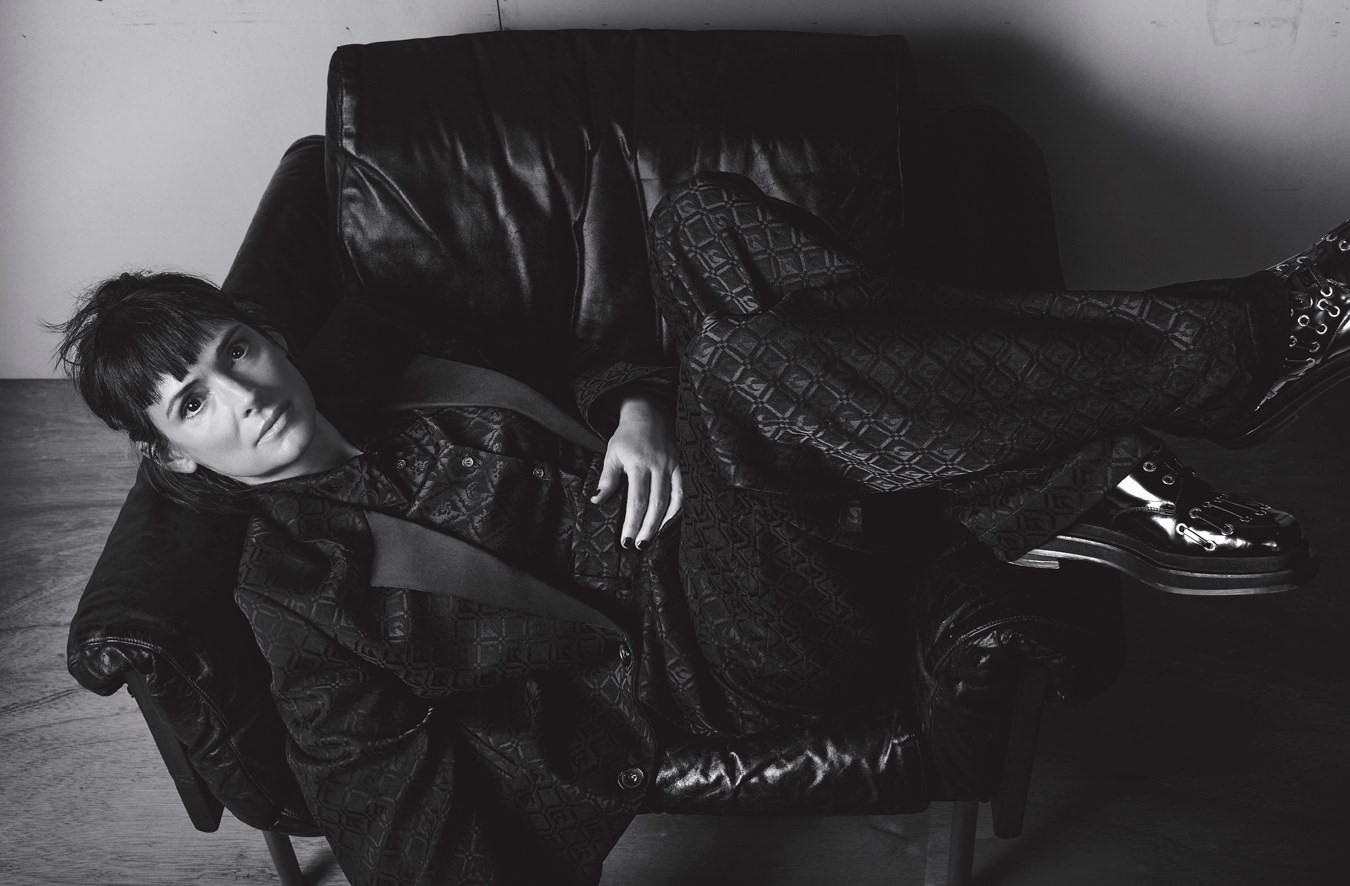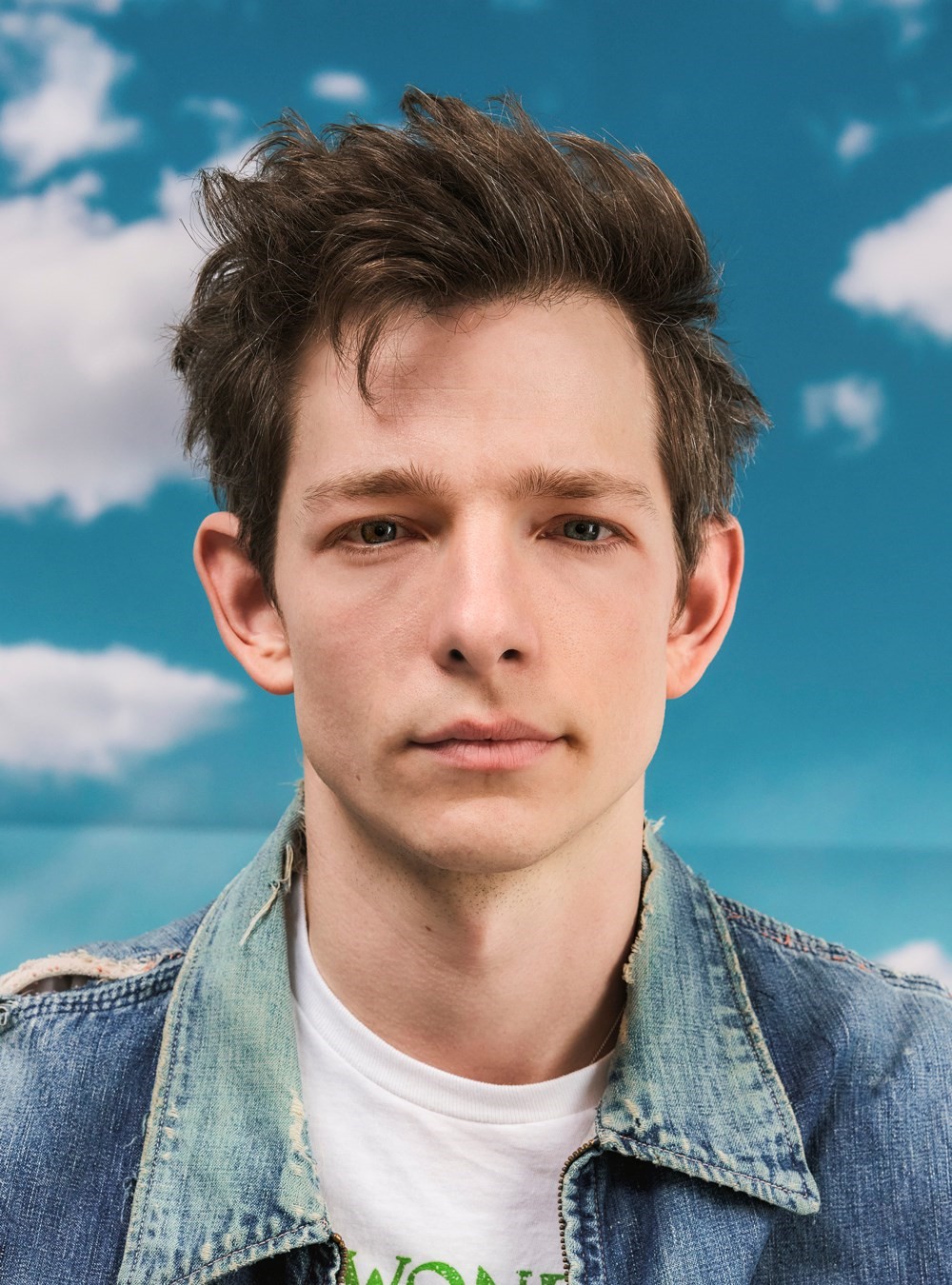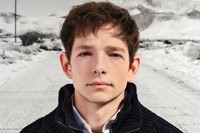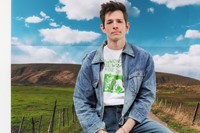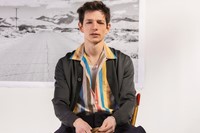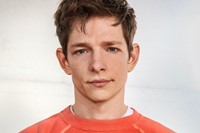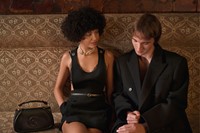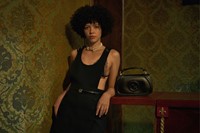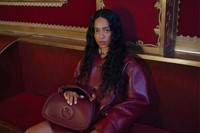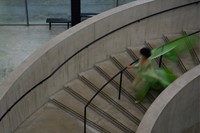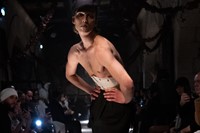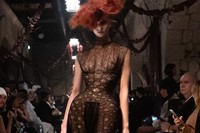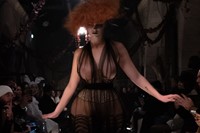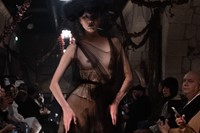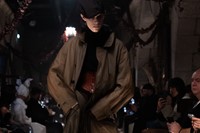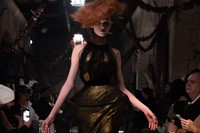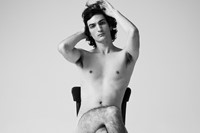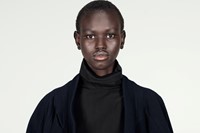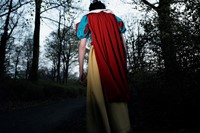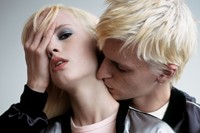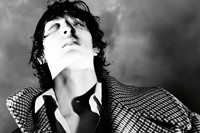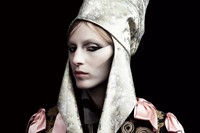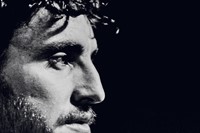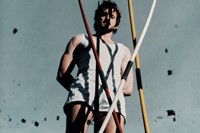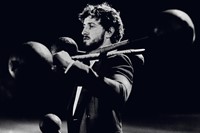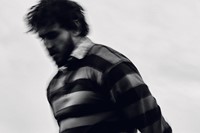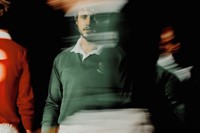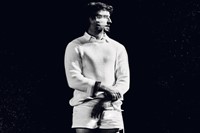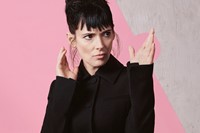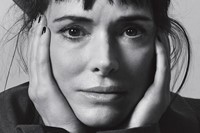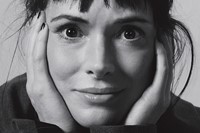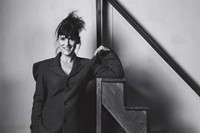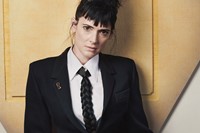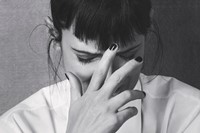1. Ted Stansfield’s Profile of Mike Faist
From a suit-wearing pre-schooler and “loose cannon” teen to a decade on Broadway and an appearance in Steven Spielberg’s West Side Story (the project he is most proud of), 32-year-old Mike Faist has run the gamut professionally as much as personally. This past year alone has seen the passing of his father and grandfather as well as his entrance into the cultural zeitgeist, following his acclaimed performance in Luca Guadagnino’s Challengers, alongside Zendaya and Josh O’Connor. Here, in conversation with Ted Stansfield, Faist pulls back the curtain on his life’s work.
2. Susannah Frankel’s Interview With Nan Goldin
Nan Goldin is a photographer whose raw aesthetic – or, as Susannah Frankel articulates, “for want of a better word, real” – is seemingly antithetical to that of Gucci’s, whose brand identity and more-is-more ethos is incontrovertibly made manifest in their ultra-stylised and glossy imagery. But when the two collaborated for the fashion house’s We Will Always Have London campaign, and their contradictory worlds collided, the capital was captured in all its strength and grandeur. Discussing how the project came about, Goldin reveals how the camera is a conduit for her voice as well as how “the greatest love that the human species has attained was on a Gucci shoot”.
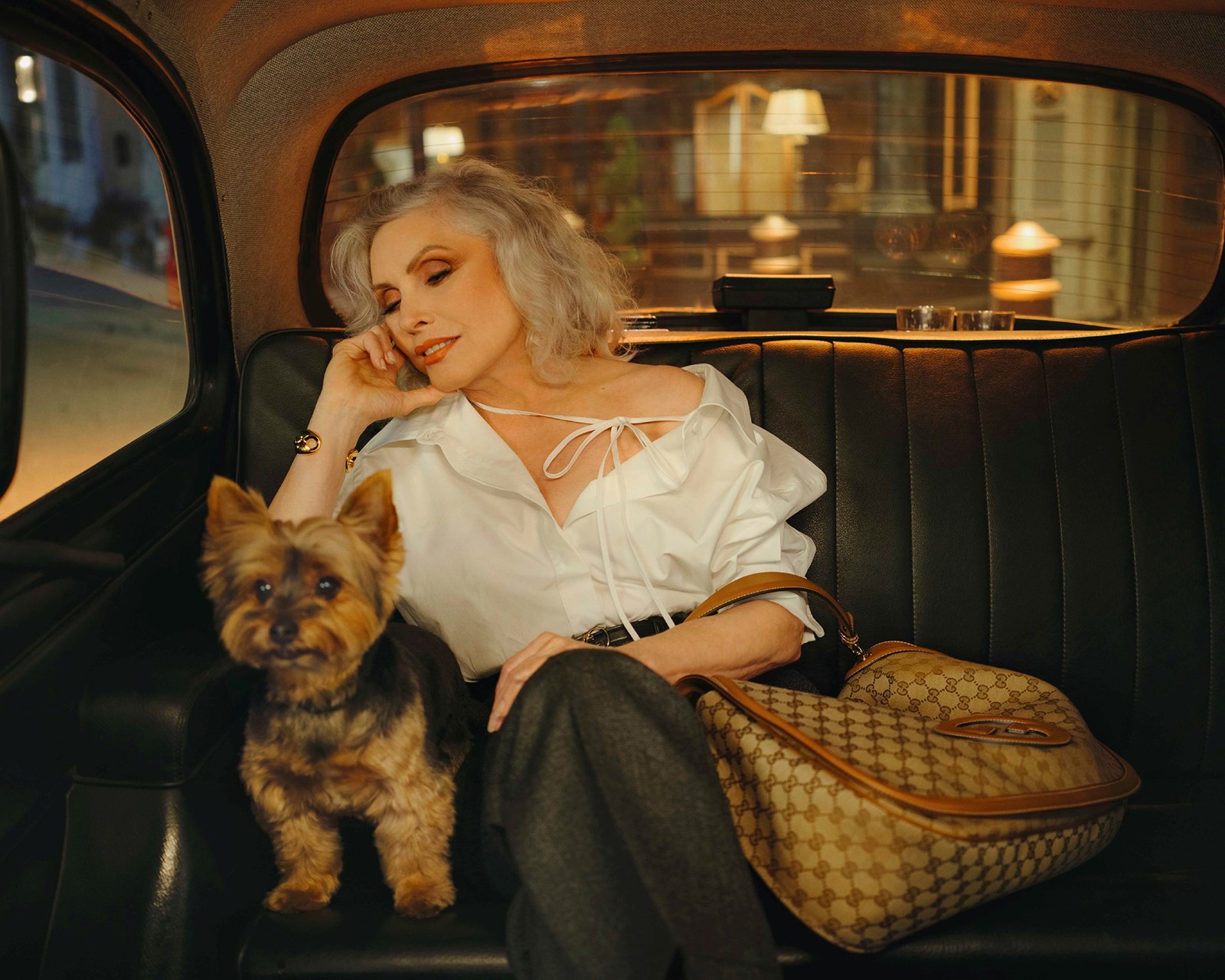
3. Dominique Sisley’s Interview With Rachel Kushner
Rachel Kushner’s new novel Creation Lake takes the reader deep inside rural France. Although based on the Vézère Valley – the southwestern region where Kushner has spent the last 14 summers – the book is set in the fictional Guyenne, where philosopher Bruno Lacombe has sequestered himself in an underground cave. “I feel like art is never a sphere for political ideas or messages,” she muses. “I write from a space of doubt, which is not where people make political formulations and declarations, but I also happen to write about life as we live it.” Dominique Sisley spoke to Kushner the morning after Creation Lake’s shortlisting for the Booker Prize. Their conversation reveals how the book came to be, from character formation to Kushner’s relationship to the idea of radical living.
4. Alexander Fury’s Review of John Galliano’s Maison Margiela Spring/Summer 2024 Artisanal Show
In January, John Galliano took over the left bank underbelly of the Pont Alexandre III in Paris for his Maison Margiela Spring/Summer 2024 Artisanal show. There, he recreated a 1920s dive bar, complete with ramshackle chairs, sickly cocktails and mercury-backed mirrors in peeling gilt frames. The show itself was a celebration of humanity, individuality, fashion as pure creative expression and extraordinary craft. If nothing else, it was a justification for the continuing relevance of haute couture. Exalting Galliano’s genius, Alexander Fury explains why the show fundamentally changed fashion forever.
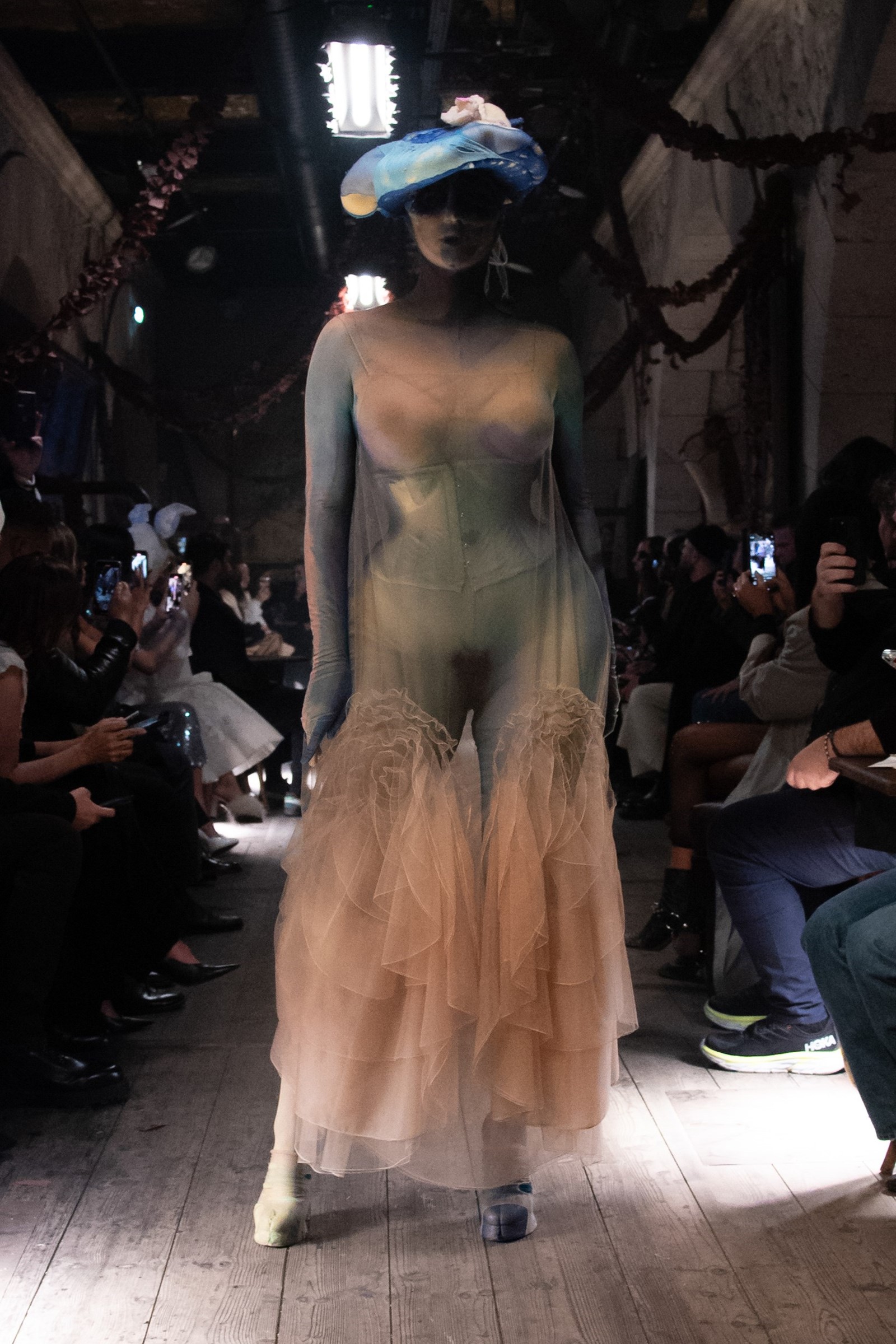

5. Violet Conroy’s interview With René Redzepi
The influence of René Redzepi, head chef and co-founder of Noma, on the world of fine dining is immeasurable. When he announced the permanent closure of its Copenhagen location last year, those with a penchant for gastronomy were shocked. He stated that Noma will now operate on a pop-up basis only and it’s already appeared in Kyoto, New York, and Mexico. Taking an equally global aperture is Omnivore – Redzepi’s show made with Apple TV+ – which explores the labour and histories behind salt, pork, corn, tuna, coffee, rice, banana, and chile. Capitalising on Redzepi’s natural aptitude as a raconteur, Omnivore moves deftly from Tokyo’s cutthroat fish markets to the boundless salt flats of Peru. In this feature, Redzepi talks about his decision to close Noma Copenhagen and the future of fine dining.
6. George Pistachio’s Interview With Willy Vanderperre
Since Willy Vanderperre’s emergence as a photographer in the early 2000s, his career has seen him following the Antwerp Six, photographing editorials for AnOther and Dazed, and shooting campaigns for Dior and Prada; as a result, the Belgian’s images have become landmark. And so, when Antwerp’s MoMu exhibited Willy Vanderperre: Prints, Films, a Rave and More, Raf Simons and Ann Demeulemeester were some of the highly esteemed guests who, alongside models and artists, arrived at the museum MoMu to catch an early glimpse. Distilling almost three decades of work, the show explores the universe he’s crafted, and to coincide with the exhibition’s opening, Vanderperre articulates the stories behind five of the show’s photographs.
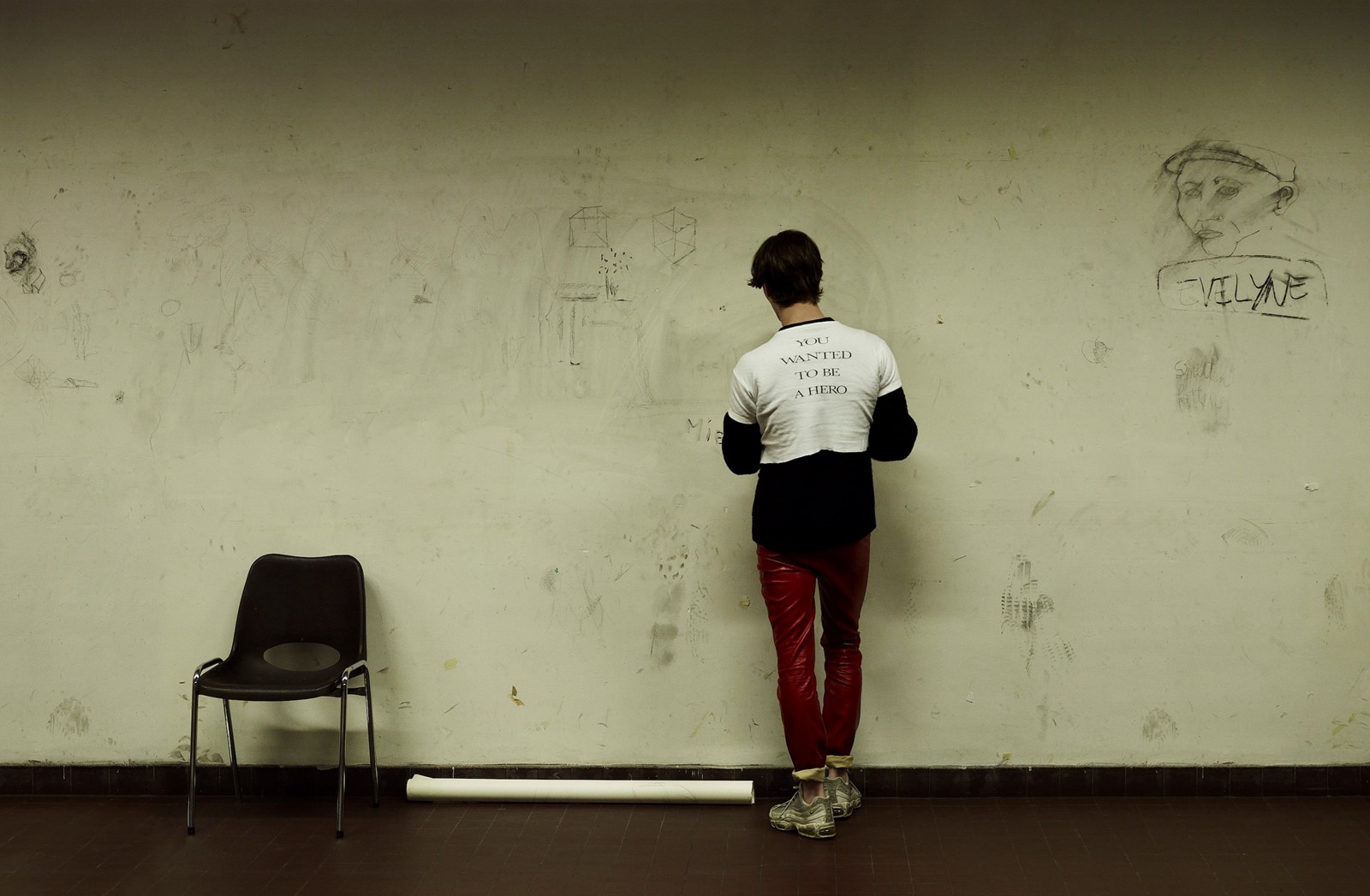
7. Violet Conroy’s Interview With Sheila Heti
Work, love and money: Sheila Heti believes these are the things that preoccupy humans the most. In the Canadian author’s new book, the Alphabetical Diaries, these are the themes predominantly explored. Comprising excerpts from Heti’s diaries over the past ten years, the novel is a brazen window into the author’s life and mind as she ruminates on questions about life, love, art, and selfhood. Here, Heti discusses keeping a diary, her dislike of the term “autofiction”, and fragmenting time and place in her writing to extraordinary effect.
8. Sophie Bew’s Conversation With Paul Mescal and Andrew Haigh
In the four years since Paul Mescal starred in the BBC adaptation of Sally Rooney’s Normal People, he has accrued a series of impressive roles. From featuring in Charlotte Wells’s devastating Aftersun to winning an Olivier for his performance in the Almeida’s production of A Streetcar Named Desire, Mescal has cultivated a variegated resume so formidable it demands to be respected. Likewise, Andrew Haigh is the esteemed British filmmaker known for works such as Lean on Pete, a crushing coming-of-age tale with Chloë Sevigny. Earlier this year, they collaborated in Haigh’s All of us Strangers, a tender exploration of gay male sex and relationships, in which Mescal starred opposite Andrew Scott. Speaking with Sophie Bew, the pair discuss the film’s poignancy, intimacy, and self-doubt.
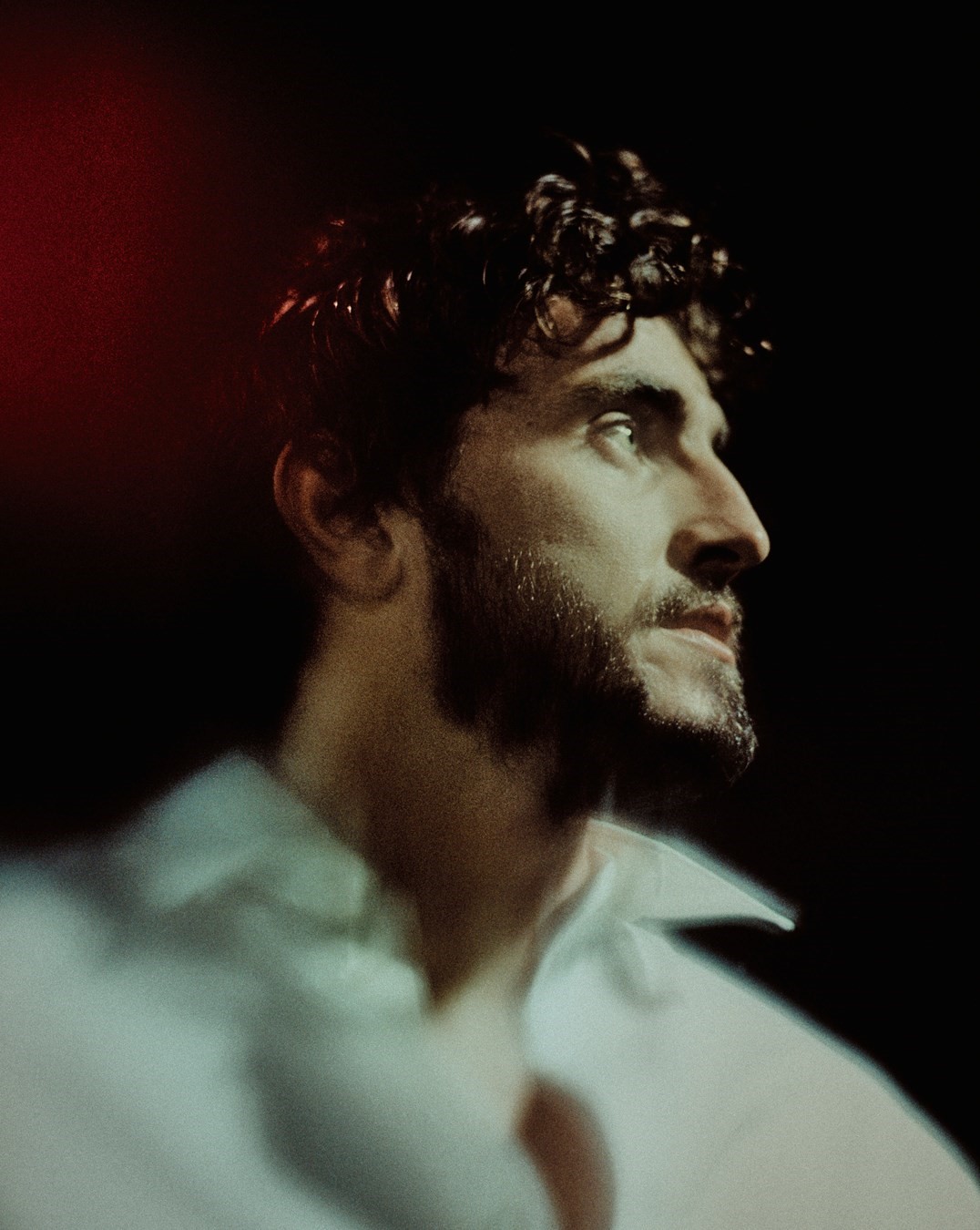
9. Claire Marie Healy‘s Essay on Girlhood and Summertime
For the fourth season of her Girlhood Studies column, Claire Marie Healy examines the grotesque side of girlhood and the relationship between femininity and the summertime. A thorough exploration of psychogeography, Healy analyses how the environments of the housebound characters in Hoard, The Virgin Suicides and The Cement Garden reflect their innate dispositions. “If Hoard and The Virgin Suicides seep and squelch, the house that the siblings [in The Cement Garden] find themselves stuck in is sterile and dry: sticky cement gone hard.”
10. Hannah Lack’s Profile of Winona Ryder
There’s no two ways about it: there is only one Winona Ryder. Preternaturally talented, the actor got her first agent aged 13 and from that moment on her career snowballed. She became a cultural touchstone for not just one, but multiple generations; it feels somehow preordained that she would one day have a star on the Hollywood Walk of Fame. As she reprises her legendary role in Tim Burton’s Beetlejuice Beetlejuice three decades on, the actress reflects on her life on the silver screen: “You can’t shed who Lydia was, but the beauty of it is we all know what happens – life happens.”
